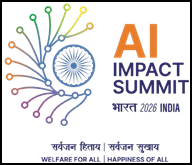Context:
Major global Software-as-a-Service (SaaS) providers — including Microsoft, Amazon, Google, Oracle, IBM, and Salesforce — are facing new tax assessment orders from the Indian Income Tax Department for the financial years 2021–22 and 2022–23.
- Key Issue: Double taxation arises, with companies facing tax demands under both the equalisation levy and income tax provisions.
Background on Equalisation Levy
- Introduction: India introduced the equalisation levy in 2020 on non-resident e-commerce operators with significant Indian user bases but no physical presence in India.
- Purpose: The levy was intended to serve as a backstop tax, applicable when income tax provisions and tax treaties could not be invoked.
- Phase-Out: The government has committed to phasing out this unilateral levy by August 2024.
Double Taxation Concern
- Voluntary Payment: Many companies voluntarily paid the equalisation levy, even though they are also required to pay tax on Fees for Technical Services (FTS) under the Income Tax Act.
- Resulting Double Taxation: Companies are now facing tax demands on the same income for which they have already paid the levy, with no clear mechanism to claim a credit for the earlier payments.
SaaS Services and Taxability
- SaaS Services: Experts argue that Software as a Service (SaaS) offerings do not qualify as royalty or FTS under Indian law or tax treaties such as the India-US tax treaty.
- Legal Interpretation: Since SaaS services are standardized and automated without human input or transfer of intellectual property, they should not be taxed as FTS.
- Reference: The Supreme Court’s ruling in Engineering Analysis suggested that SaaS companies’ income should not be classified as royalty.
Impact of Tax Treaties
- Narrow FTS Definitions: Countries like the United States, United Kingdom, and Singapore have more restrictive definitions of FTS in their treaties with India, which strengthens the case against taxing SaaS companies as FTS.
Potential Legal Challenges
- Possible Litigation: Given the ambiguity and potential for double taxation, foreign digital businesses may challenge the assessment orders in court.
- Need for Clarification: Experts suggest that unless the Central Board of Direct Taxes (CBDT) provides clear guidance, the matter could lead to fresh litigation, increasing uncertainty for foreign companies operating in India.
Key Points
1. Revenue Reclassified as FTS
- The tax department has classified revenue earned from Indian customers as “Fees for Technical Services” (FTS) under Indian tax law.
- FTS includes technical, managerial, or consultancy services, taxed at 15% under the India–US Double Tax Avoidance Agreement (DTAA).
2. Shift in Tax Interpretation
- Before 2021, similar payments were generally categorized as “royalty”.
- However, a Supreme Court ruling in 2021 (Engineering Analysis Centre of Excellence case) stated that payments for standard, off-the-shelf software are not taxable as royalty under Indian law or most treaties.
3. Continued Scrutiny Post-Ruling
- Despite the Supreme Court judgment, the tax department is now exploring whether payments to foreign SaaS firms can be taxed as FTS.
- The rationale: these SaaS products may automate tasks that would otherwise need human input, qualifying them as technical services.
4. Current Status
- Assessment orders have been sent, but none of the companies or the Central Board of Direct Taxes (CBDT) have issued formal responses yet.
Implications
- This move signals renewed tax scrutiny on cross-border digital services.
- It may affect compliance strategies and pricing structures for foreign SaaS providers operating in India.
- Potential tax disputes could emerge over interpretation and classification of software services under Indian law.

















